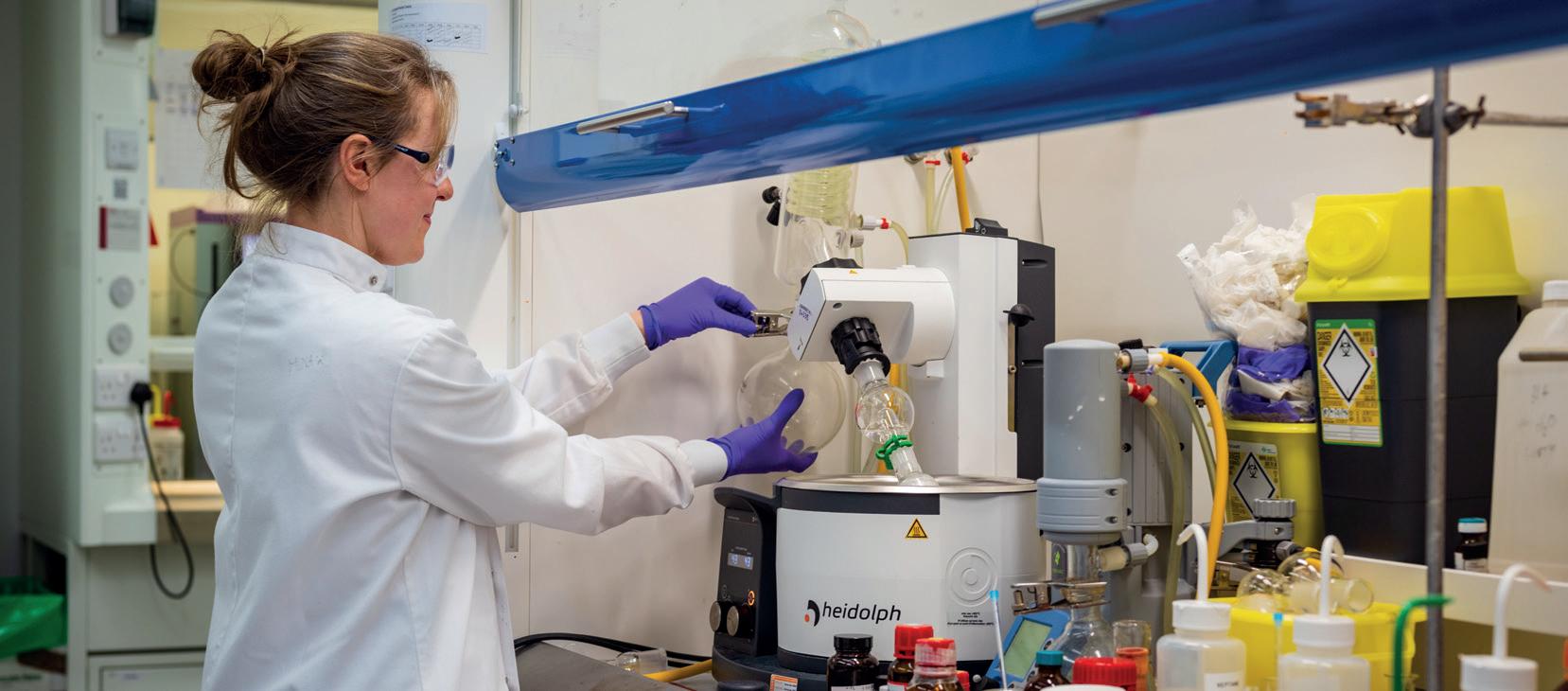
2 minute read
Spotlight on our Synthetic Methodologies team
Chemistry is fundamental to the drug discovery process. Through funding from WCAIR, we have been looking at ways in which we can increase the efficiencies of our chemistry processes. This has taken a number of different aspects.
Plate-Based Chemistry
Advertisement
To speed up chemistry synthesis and screening we have invested heavily in the development and introduction of automated plate-based synthesis methodology. This approach can be carried out in 96- or 384-well-plates, allowing large numbers of analogues to be prepared.
It makes extensive use of computational chemistry in the design process, to generate many virtual compounds which can be filtered and selected by desired properties and then synthesis can begin. We make extensive use of robotics to automate the processes as much as possible. Another advantage is that it can be carried out on a very small scale, typically of the order of 0.1mg per compound which is two hundred times less than traditional methods used within the DDU.
The process is illustrated in the figure below and follows a design, make, test cycle using multiple rather than single samples per cycle.
We have optimised a variety of chemical reactions to be used with this platform. Where necessary we have also integrated specialised equipment when a conversion has a particular requirement; for example for rigorously inert conditions or for photoredox applications. We have also developed analytical and preparative LCMS methods combined with a calibrated evaporative light scattering detector to measure the quantity of purified compound avoiding the requirement to weigh very small amounts of material. We have established that in many cases the compounds synthesised in this way do not require purification before a biological assay, which further speeds up the process. This technology has been rolled out into multiple projects and series, allowing rapid establishment of structureactivity relationships. Since the development of the process over 7500 compounds have been synthesised and tested speeding drug discovery efforts.
Late Stage Functionalisation
We have been identifying and validating a dedicated set of reactions which allow functionalisation of elaborated molecules without extensive synthesis. This is useful to allow fast optimisation of late-stage molecules reducing the timelines to optimise compounds of interest.
Biotransformations
We are investigating the use of biotransformations of molecules using enzymes. Some of this work is being carried out in collaboration with a small company called Hypha Discovery Ltd. We are investigating which approaches give us access to molecules which are not easily made by conventional organic chemistry.
Flow Chemistry
We have developed a fully capable flow chemistry set up that has allowed the synthesis and use of unstable intermediates and the safe generation and use of carbon monoxide. The system has also been upgraded and used for electrochemistry and light driven chemistry increasing access to chemical space using these reagents and techniques.
In conclusion
The combination of developed and validated chemical technologies has allowed chemistry to be delivered to project teams that would otherwise have been difficult or impossible. The approaches developed have increased the range of molecules available to synthetic chemists and allowed faster delivery of compounds to speed drug discovery efforts.










